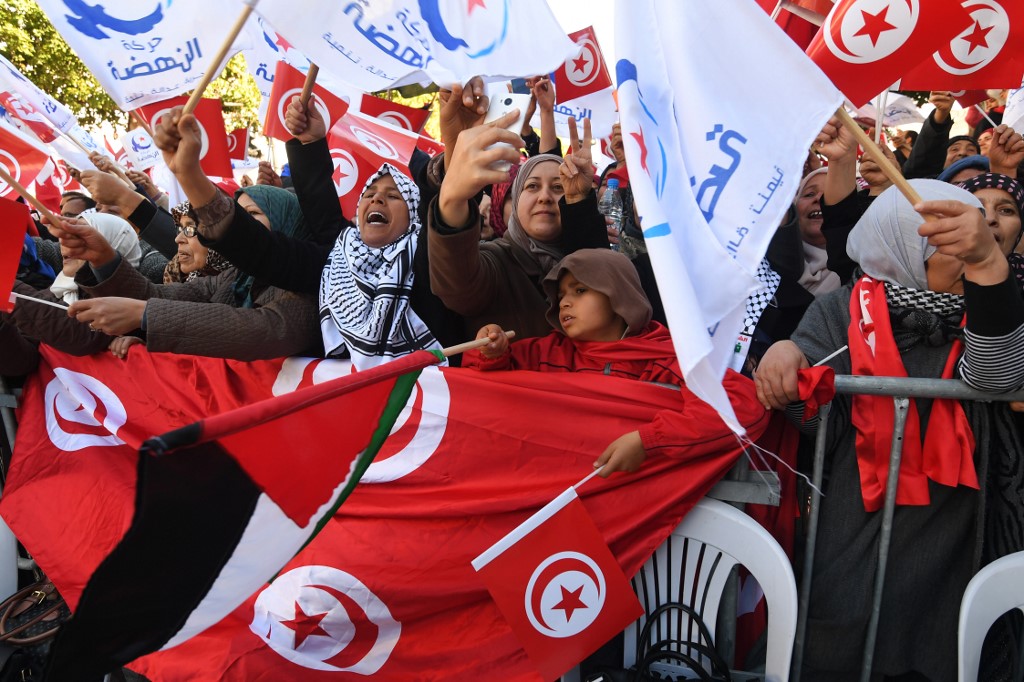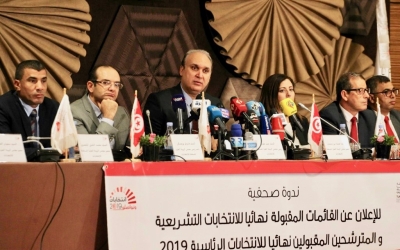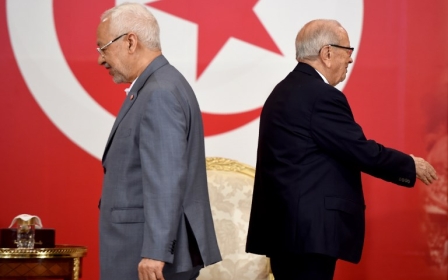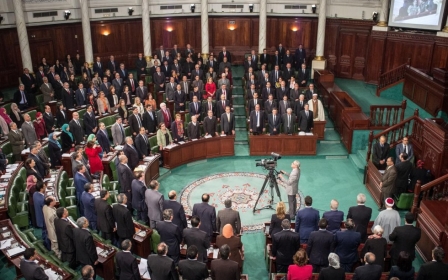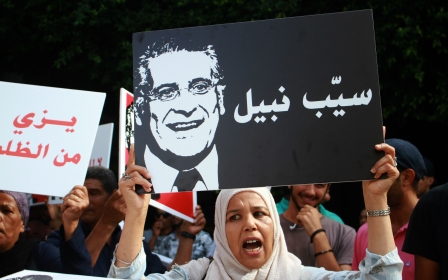Can Tunisia's secularists tolerate an Islamist bid for power?
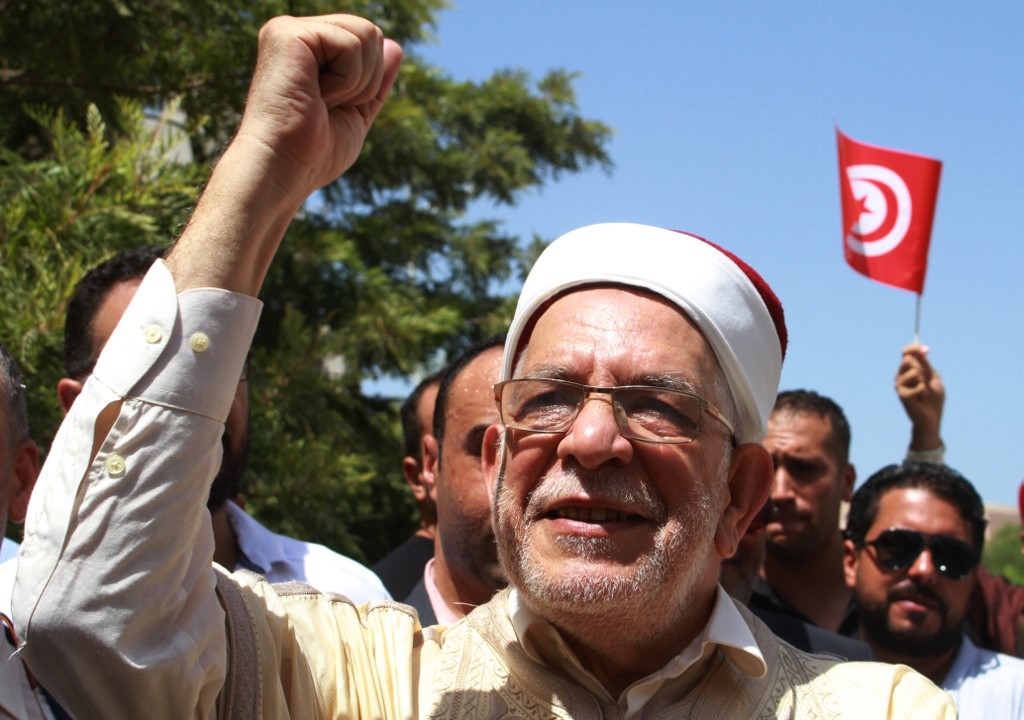
The decision by Tunisia’s largest political party to nominate its deputy leader, Abdelfattah Mourou, to run for president in mid-September represents a paradigm shift that will have major consequences for the Ennahda movement, regardless of the vote’s outcome.
Remarkably, the decision received unanimous approval from 98 members of the Ennahda Shura Council who attended the nomination meeting (the council has 150 members in total).
Although some Ennahda leaders disagree with the decision to field a presidential candidate, they respect it in accordance with the principle of party consultation.
Morou, 71, a lawyer and one of the founding fathers of Ennahda, is considered one the party's most moderate leaders. He is also the interim speaker of parliament following the death of President Beji Caid Essebsi in July.
Uncertainty abounds
New MEE newsletter: Jerusalem Dispatch
Sign up to get the latest insights and analysis on Israel-Palestine, alongside Turkey Unpacked and other MEE newsletters
Since the announcement of Mourou’s candidacy, reactions have varied between cautious welcoming, fear and disapproval. These conflicting sentiments reflect the uncertainty of the Tunisian experience - a key feature of the democratic transition itself.
According to political analyst Mokhtar Khalfaoui, speaking to Middle East Eye, Mourou will could easily reach the second round, although he is unlikely to win the presidential election. "For the general public, the ‘sheikh' and religious man's image overpowers the lawyer's and politician's one. But apparently, this is the best the movement has for this position," he said.
Democratic transition is a process that entails uncertain outcomes. While some observers say Ennahda crossed its own “red line” to not compete for power by nominating one of its leaders for the presidency, others see it as an opportunity to judge the Islamists and their effectiveness in governance.
There are hopes - now diminshed - that these obstacles can be overcome, allowing Tunisia to move towards the consolidation of democracy
Some insist that Mourou would be unable to govern the country, even before the race began. Such reactions reflect concerns about Tunisia potentially falling into the trap of polarisation and political and ideological divisions, which have plagued other transitions in the Arab world.
Given the setbacks that have beset the Arab Spring movement in recent years, these fears are justified. There are still hopes, now dimished, that these obstacles can be overcome, allowing Tunisia to move towards the consolidation of democracy.
Divisions among Islamists
At the same time, Arab Islamists are divided over Ennahda’s decision to run a presidential candidate. Some welcome the decision as a step towards normalising Islamists’ relationship with politics, viewing this as a departure from the cycle of fear and historical reluctance to compete for power.
Others, however, see it as a risk - a miscalculated move that could create many problems - not only for Ennahda, but for the nascent democratic experience in Tunisia as a whole. They believe that if Mourou wins the elections, there could be domestic and regional backlash, especially in light of the fierce and ongoing confrontation between the counter-revolutionary axis (Egypt, the UAE and Saudi Arabia) and political Islamic forces.
The negative experiences of Islamists who have taken power in Sudan, Algeria, Egypt, Palestine, Morocco and Turkey are not encouraging for Islamists: the fight for power could cost them more than they might gain.
Islamists might be worried about the spectre of the Egyptian experience that still looms large. In Egypt, the deep state and “civilian” elites overturned the Muslim Brotherhood’s rise to power.
A test for secular and democratic forces
The nomination of Mourou is also a test for secular and democratic forces and elites both in Tunisia and abroad.
Insofar as his nomination may challenge Ennahda’s popularity and appeal, it also represents a political and moral challenge to the secular elites and parties to accept an Islamic candidate, and not to fall into the trap of intimidation, distortion and exclusion, regardless of whether or not he wins.
Mourou’s candidacy represents a watershed moment - one that will reveal the extent to which Tunisian elites will adhere to the rules of the democratic game, without being drawn into a scenario of demonisation and obstruction. It will reveal the solidity of Tunisia’s democratic experience and transition.
The key question now is not whether Mourou will win the presidency, but whether non-Islamists will tolerate an Islamist candidate - and possibly a president - and overcome their inherited fears of Islamists, in order to avoid the disastrous mistakes of their counterparts in Egypt.
The views expressed in this article belong to the author and do not necessarily reflect the editorial policy of Middle East Eye.
This article is available in French on Middle East Eye French edition.
Middle East Eye delivers independent and unrivalled coverage and analysis of the Middle East, North Africa and beyond. To learn more about republishing this content and the associated fees, please fill out this form. More about MEE can be found here.



